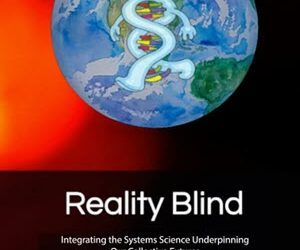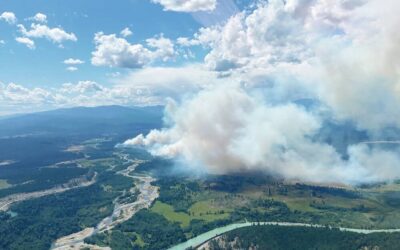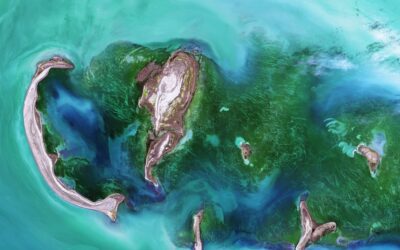by Laura Paddison on CNN….For decades, scientists have been sounding the alarm on the circulation’s stability as climate change warms the ocean and melts ice, disrupting the balance of heat and salt that determines the currents’ strength.
The perverse policies that fuel wildfires
by Elizabeth Kolbert in The New Yorker…Strategies intended to safeguard forests and homes have instead increased the likelihood that they’ll burn.
Crazy Town: Episode 74. Prepping for the apocalypse: Elites’ foolish fantasies for surviving a collapse of their own creation
by Asher Miller, et al., in podcast Crazy Town: Meet Barrett Moore, the bunker-building bullshit artist who helps capitalists survive the apocalypse with beans, bullets, and bravado. Please share this episode with your friends and start a conversation.
Hurricanes becoming so strong that new category needed, study says
by Oliver Milman in The Guardian…Scientists propose new category 6 rating to classify ‘mega-hurricanes’, becoming more likely due to climate crisis
The Seven Shifts
in Horizon 2045…We safeguard the wellbeing—and the promise—
of future generations.
We realign our human experience around propelling humanity forward
Reality Blind
by Nate Hagens Reductionism is quite useful, but both dangerous
and insufficient. A science-based worldview which looks at all the
puzzle pieces at once can make sense of things. The important
knowledge now resides between the disciplines.
Intertwined and interconnected: Can you discern?
by Janet Harvey in Invite Change.com ..Have you ever wondered about the intricate web of influences that shape your business? Are your leaders equipped with the necessary discernment and systemic thinking to navigate today’s complex landscape? In this blog, I uncover these interwoven and interconnected forces. Explore this critical topic and delve into the importance of preparedness in the face of these interconnected dynamics.
The AI age begins
by Peter Leyden in The Great Progression….The beginning of a step change in human capabilities as well as a new season of events and media coming out of ground zero San Francisco
Global collaboration of scientists needed to solve polycrisis
in Cambridge University Press….“Above all else, the polycrisis concept emphasises that crises interact with one another in highly consequential ways that are grossly underappreciated by academic and policymaking institutions that study those crises individually, in separate silos.”
Polycrisis in the anthropocene: An invitation to contributions and debates
by Michael Lawrence in Cambridge University Press…The popularity of the term polycrisis suggests a growing demand for new thinking
about the world’s intersecting crises, but loose and haphazard uses of the concept impede knowledge
generation. The special issue, “Polycrisis in the Anthropocene,” aims to close the gap.





